Sabah’s state election provides an opportunity to assess the broader lessons from the campaign for both Sabah and Malaysia moving forward.
Warisan Plus fought a hard campaign. It won the most seats individually, but ultimately it did not have enough seats to form the government. Perikatan Nasional and Umno, with the resources of the federal government behind them, allied with two local parties tapping into state nationalist sentiments of the Kadazan-Dusun-Murut community, collectively won 38 seats, which as of today will be boosted to 44 seats due to the provisions on the Sabah constitution (which allows up to six nominated members of the assembly).
The three independents are also aligned with the state government making the majority 47, and subject to no jumping from Warisan Plus (which cannot be ruled out), the new government will likely have a majority of 10 seats – secure, but not fully secure. It will only take one of the four major parties to potentially destabilise the government.
Earlier this week, I studied voting trends by ethnicity. Further analyses of voting and dynamics of the campaign are needed. At this juncture, with a new Sabah government led by Hajiji Noor now in office, and with national elections looming or new political configurations ahead, there is a need to look beyond the numbers - to look back in order to move forward.
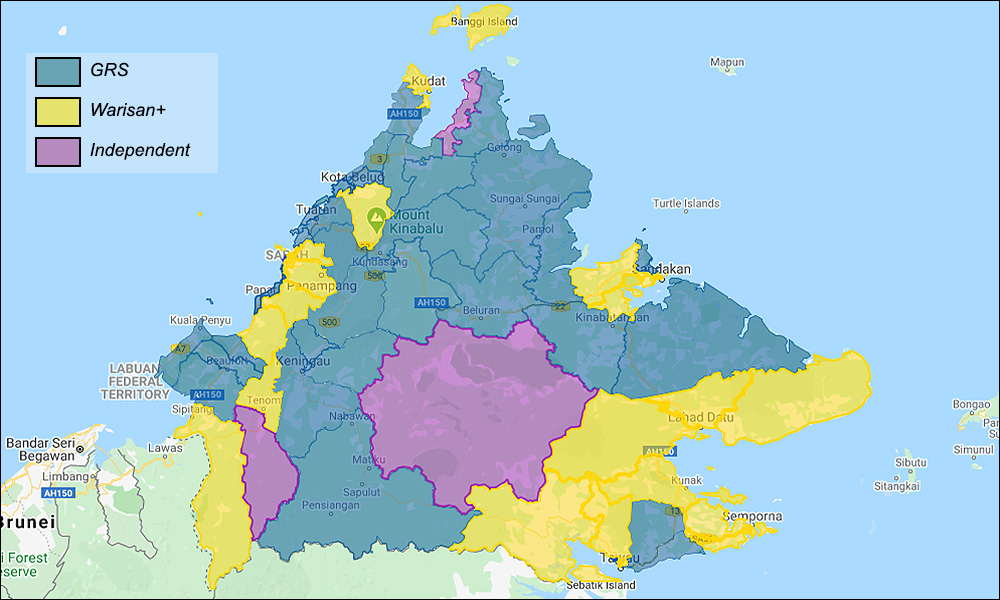
Ironic Umno legacy reckoning
To understand the Sabah results, the core issue involves the legacies of Umno federal interference and governing in Sabah – all ironically which worked against the alliance pushing for state autonomy, Warisan Plus.
The serious problem of an estimated at much as one million illegal immigrants (PTI), fostering suspicion of an ‘Eastern’ led government within the west coast and north of Sabah (as Warisan is perceived by many to be) and persistent feelings of displacement among the Kadazan-Dusun-Murut communities, remains unresolved and deeply politicised. It was a decisive issue left festering under the Warisan government and, in fact, ironically used by those who caused the problem to come back into power.
Coupled with the PTI issue is the indictment of mass poverty – one in every five households. This share was calculated before Covid-19. Economic conditions are worsening, with some parts of Sabah especially hard hit without tourism, declining palm oil prices, depleted fish stocks and closed borders for effective trade.
Poverty was politicised and capitalised on during the campaign. The suffering of ordinary Sabahans remains serious. Throwing money in the form of temporary aid may win you votes and ameliorate immediate concerns but will not fundamentally change the social conditions without new holistic interventions.
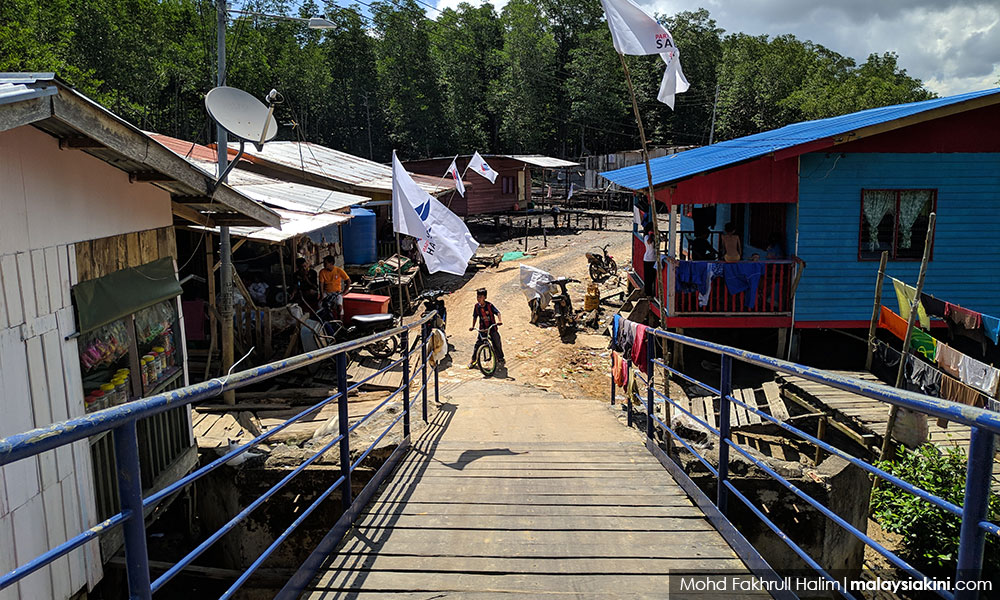
Voting against an incumbent government in a bad economy is the norm. Warisan’s government did not offer adequate improvements in daily lives for many voters. Initial assessments suggest that many of the areas with the highest concentrations of poverty voted against Warisan Plus, as lower-income voters were more effectively wooed by financial incentives and among the hardest hit by the economic downturn. Ironically here too, Sabah’s economic performance depends heavily on the policies and direction of the federal government, and the central problem of poverty and neglect of Sabah for decades lies with Putrajaya.
Finally, there is the problem of financial dependence. Muhyiddin Yassin’s political party Bersatu won 11 seats. Umno, 14. Without the state-based parties of PBS and Star, Gabungan Rakyat Sabah (GRS) would not be in power.
Many ask why these parties do not move to Warisan (besides the facts that they have been political opponents to Warisan, and this is not what their voters voted for). A key reason is the lack of funds. Without it, they cannot deliver to their constituents (or in some cases to themselves).
As the federal government has not provided Sabah with what was an agreed share of their own resources of oil and gas in the original Malaysia Agreement 1963 (MA63) agreement and there are widespread perceptions of unfairness in the disbursement of revenue, being close to the federal government is seen as a necessity.
Sabah does not have adequate resources at the state level and needs revenue from the centre to engage in broader social and economic policies and is not able to address problems of infrastructure and development without federal resources and cooperation. This financial dependence is also ironically a product of the federal government unwilling to meaningfully recalibrate the state-federal relationship towards greater decentralisation.
Limited change under Harapan
From immigration and poverty to financial dependence, Warisan inherited these issues and in the two-year window it had to make changes in the relationship and address these issues under the Pakatan Harapan government, limited advancements were made.
Few Sabahans had any expectations – except negative ones – of a Mahathir-led government. Nevertheless, Warisan Plus’s loss can be seen to be a product of Harapan as well, a lack of strong federal political will to address the long-standing issues in the Sabah (and Sarawak) federal relationship, many of which were caused and others exacerbated under the first Mahathir tenure.
Many would also say rightly that time was short for Warisan, at 26 months. The election results - winning the popular vote - speaks to its strong support, especially over the alternatives. Opposition to Umno remains high. Yet the concrete deliverables Warisan Plus rushed through and highlighted in the campaign, such as land titles, were seen by some as electioneering rather than items delivered during the government’s tenure.
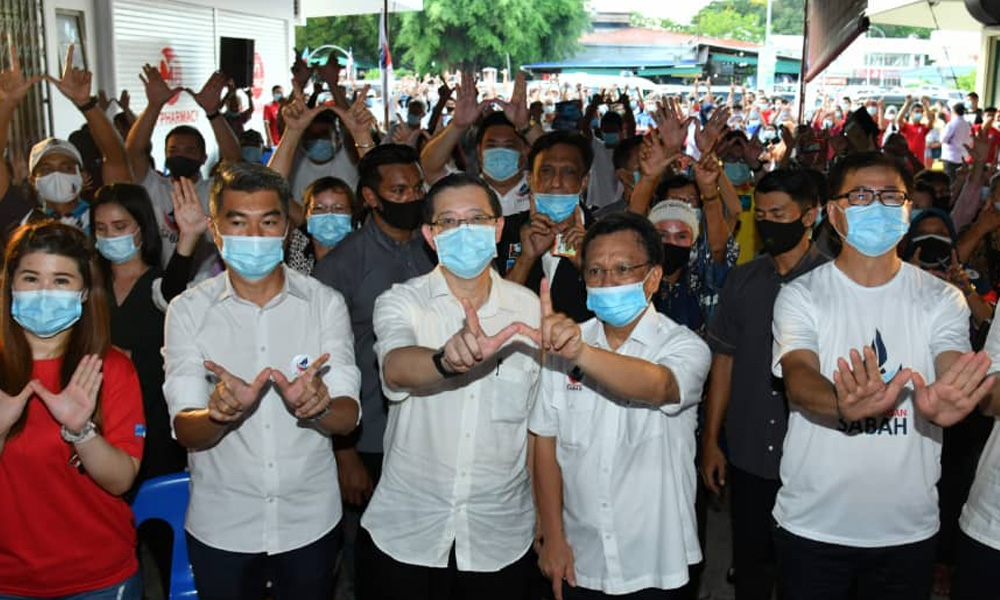
While large numbers of Sabahans continue to support Warisan Plus, a failure to address the legacy of the past and to show concrete successes while in office undercut its chances electorally. While there were many important initiatives, the Warisan government overpromised - particularly in some localities where it lost tough fights - and did not lay out clear governance priorities.
In government, Warisan did not clearly communicate its priorities and successes effectively. In essence, Shafie’s government faced challenges similar to Harapan – clarity in delivery, priorities and communication.
Still a national contender
The Sabah polls have left an imprint on the national stage well beyond the electoral outcome. Even in defeat, Shafie remains one of the most popular national politicians after the Sabah polls. His embrace of unity, bravery to speak to issues of religious and multi-ethnic inclusion, and dissolution of the assembly in July in response to a government takeover attempt has increased support for his leadership among those believing in reform.
This comes after he stood up on the issue of 1MDB in 2015 and did not join with Muhyiddin when he formed the backdoor government this February. He and the Warisan Plus government paid a heavy price, one which ironically will strengthen its support for some and along with it, a leader who some see as being ousted from office too early to face a GRS well-oiled machine onslaught campaign. The sentiment is “he took a hit for the team and the nation”.
Within Sabah, Warisan remains the largest single party and has a strong base. Political instability in the current Sabah government will offer Warisan Plus the possibility of government, and ultimately Hajiji faces an even more challenging environment than Warisan did.
Shafie has emerged from the Sabah polls as a major opposition and stronger national leader, one that will continue to play a role on the state and national stages at a time when there are increasing questions of leaders across the political spectrum.
New unity narrative
At the same time, the Sabah polls have shifted the national narrative in its embrace of race and religious unity. This may be uniquely Sabahan, but keep in mind this message won the most votes as the cornerstone of the Warisan campaign.
Unity, tolerance, a different notion of nationhood all became part of a political message that resonated strongly – one that signals to those using divisive politics pitting communities against one another that Malaysians are looking for different politics. Not since Dr Ismail Abdul Rahman has there been a Malay leader so articulately pushing for inclusive national politics.
While this narrative does appeal to one of the poles in politically-divided Malaysia, and quietly some in Sabah were responding against this inclusive message in their campaigns, the tenor of race and religious politics was different.
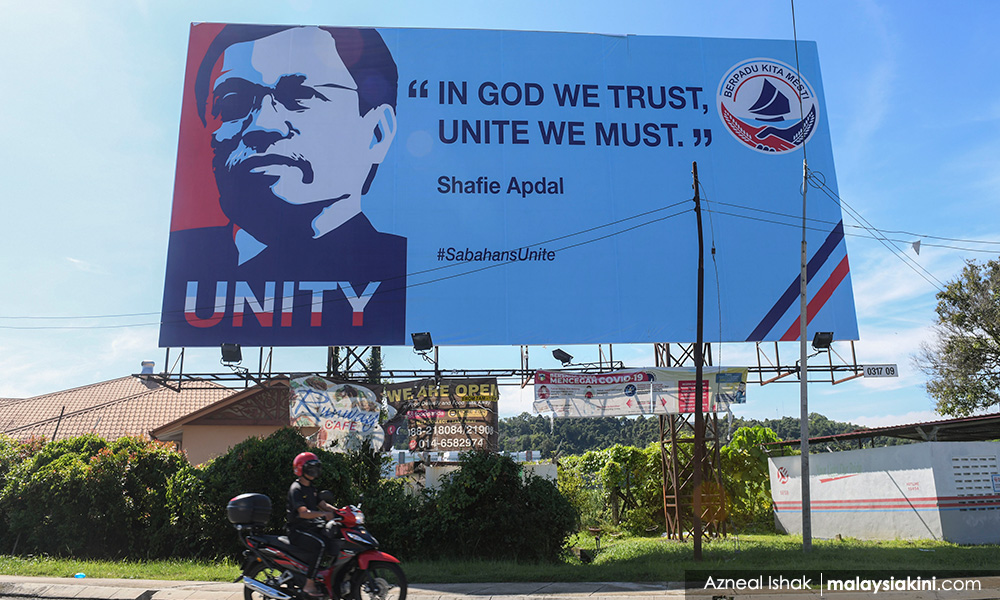
Religion was used to unify, not divide – a message in campaign posters that were shared across Malaysia. It offers new thinking and framing – and it is not a coincidence that we see this national message of a ‘racial problem’ already being embraced by Muhyiddin in a recent speech. The reality is that Malaysia’s divisions over race and religion run deep, and are not going away anytime soon, but a conversation about unity has been enriched.
End of Umno hegemony
The results also confirm the pattern which has been known for some time. Umno is no longer the hegemonic party. This was the Sabah poll results as well. While Bersatu may be seen to be from the Umno mould – comprised of many former Umno members – Umno alone is not in command and does not control the Sabah chief minister position.
Even combined, Umno and Bersatu cannot govern. The era of Umno hegemony is over. This contributes to greater concerted efforts to get it back, to push for elections, but also underscores a new political environment where compromise is necessary – even for Umno.
During the campaign, Umno, Bersatu, PBS and Star had challenges working together, but many of these challenges were put aside as the campaign evolved. Sabotage was reduced, as there were open efforts to mend fences with, for example, well-publicised visits by former chief minister Musa Aman to his former constituency Sungai Sibuga. These interventions made a difference.
Early indications are the GRS will face continued challenges moving forward as the coalition is new, with the old mindset of Umno in charge still present. Personalities – those known for fighting and changing their minds – will also be at play. Hajiji, known for his calm demeanour, will have to lead and be a referee at the same time. Having been in politics since 1990, he is an experienced administrator.
Persistence of familiarity and insecurity
This is a testing time for Malaysia on many levels – with a contracting economy, rising Covid-19 cases amidst a global pandemic, and continued political uncertainty. The shadow of a change or break-up of the federal government will impact Sabah directly. We have seen this instability in Johor already. With more parties in Sabah’s GRS led by strong public personalities, the sources of instability are arguably even more prominent.
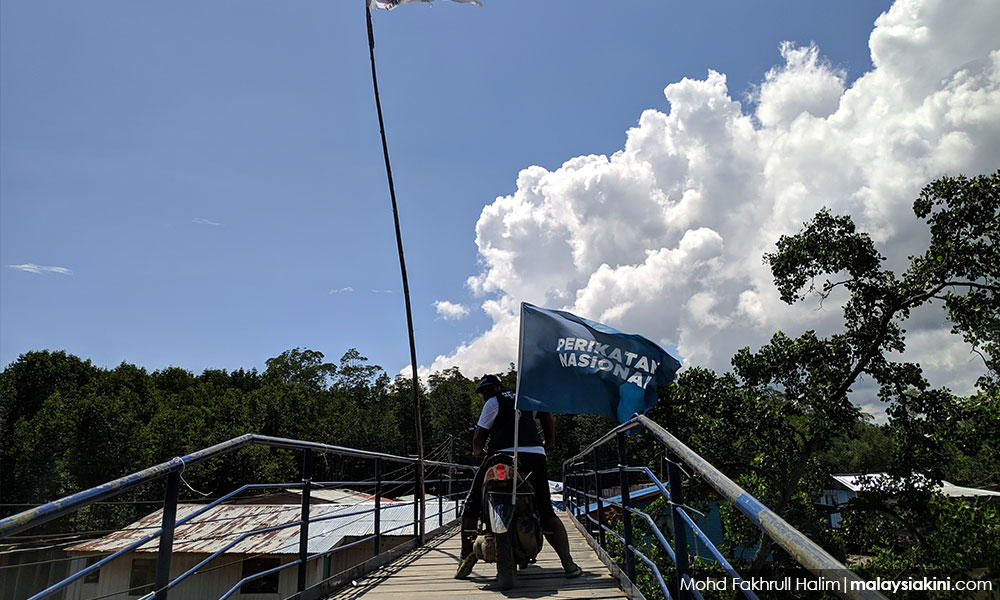
Bersatu now has moved its political base to Sabah to become a stronger national party. With this expansion comes reactions and greater opposition. The strengthening of Muhyiddin’s party is his main election success from Sabah, one that might be a liability moving forward as it pits him more directly against Umno.
During the campaign, attention was centred on Muhyiddin, and his Covid-aid governance was seen as winning over Sabahans. No question he is a popular figure, especially among poorer and more rural populations in Sabah. Yet, it is also important to understand that Sabah’s election took place at a time of insecurity and people returned to what they know, the familiar party or personality for security. PBS and Umno, in particular, benefitted from this.
Rise of state nationalism
Many see this election as a victory for federal power. It is understandable as Umno is back in power in Sabah. Yet at the same time, the election further increased the saliency of state rights. ‘Sabah for Sabahans’ is a movement with deep roots, and they have deepened further.
Those in Warisan that have lost this election are even angrier at the federal government. Demands for Sabah are stronger coming out of this election. PBS and Star will have to deliver something to justify being part of the government. This will not be easy as attention turns away from Sabah.
In understanding Sabah’s polls and the trajectories ahead, from the troubled federal-state relationship, challenges of a new government to changing national narratives, new national leaders and roles for parties amidst consistent insecurities, Malaysia is entering a new era.
Interrelated federal-state coalition governments are now the norm and with it, the hard reality of interrelated political uncertainty.
BRIDGET WELSH is a Senior Research Associate at the Hu Fu Centre for East Asia Democratic Studies and a Senior Associate Fellow of The Habibie Centre. She currently is an Honorary Research Associate of the University of Nottingham, Malaysia's Asia Research Institute (Unari) based in Kuala Lumpur. She tweets at @dririshsea. - Mkini




No comments:
Post a Comment
Note: Only a member of this blog may post a comment.